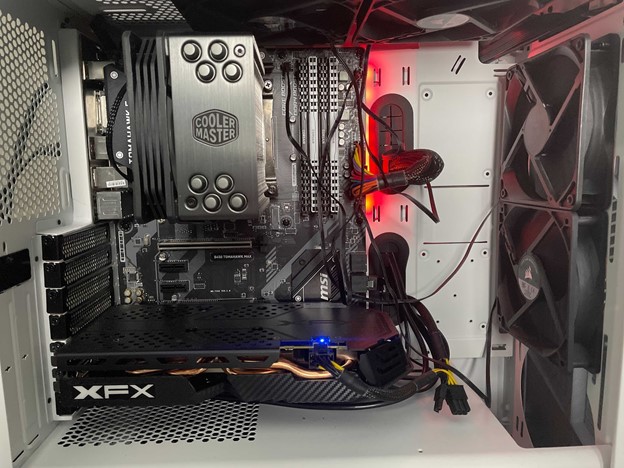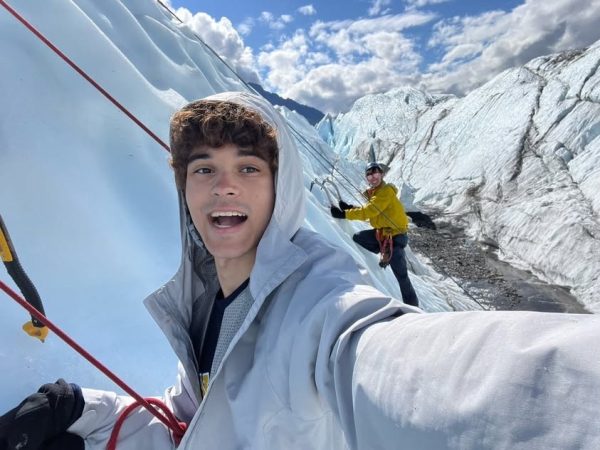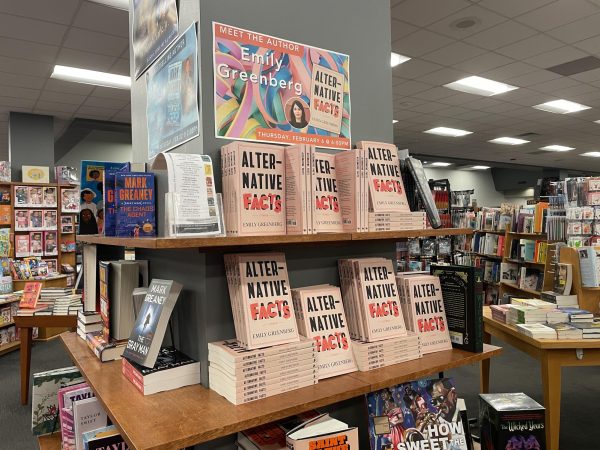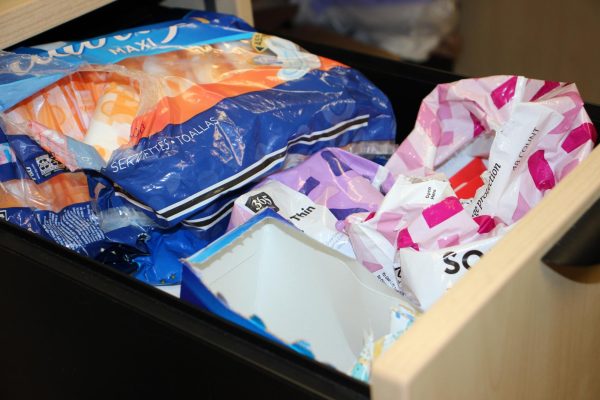Computers are pulling the world along, but these students took the reins.
The back of Noah Dorsey’s (10) homemade PC displays the motherboard, graphics card, and fans . Dorsey was inspired by YouTube creators that also built PCs and received all his knowledge from them.
Computers are a huge part of students’ lives now, but some have forgotten the opportunities they offer. Noah Dorsey (10), Gahana Nagireddy (11), Arya Rajesh (10), Spoorthi Marada (10) and Tristen Gordon (10) went above and beyond to expand their knowledge beyond Microsoft Teams. Dorsey decided to take initiative and construct his very own gaming desktop.
“Everyone was doing one, and I wanted to hop on the trend,” Dorsey said. “Some of my favorite YouTubers were doing it, so I did it. I watched the videos of other YouTubers and learned a lot.”
After waiting almost a month, Dorsey received his computer parts in the mail. The PC took around a week to build. After three unsuccessful trials, Noah finally turned on his computer.
“Three times [the pc did not work]. [The first time] power would not turn it on, nothing was working; and then the second time GPU [graphics processing unit] wouldn’t turn on; and then a third time, I think a fan wasn’t spinning but everything else was on,” Dorsey said. “Very frustrating, very hard. I almost cried that second time.”
In order to delve into the computer science world, Dorsey built his own computer, but some students chose to take a different approach. Nagireddy, Rajesh, Marada, Gordon, and others all tutor kids through their non-profit organization called CodeUnited Global.
“It [CodeUnited Global] is a non-profit organization that we made that teaches girls [and boys] grades one through twelve some free coding classes,” Nagireddy said. “[We] want to make sure women across the world have equal access to a good computer science education.”
Each student tutors a different grade level through a free website called Code.org. The interactive and hands-on assignments keep kids engaged and allow them to express their own creativity.
“We kind of just lead the kids through each lesson and teach them the main components, try to make it fun so they actually enjoy coding and they learn to love it,” Rajesh said.
Gordon teaches a Javascript class, which was recently added to CodeUnited Global’s curriculum selection.
“CodeUnited Global made an entire course for java including review lessons, homework and all that,” Gordon said. “And I go through that and I go through demos and stuff with the students.”
Rajesh and Marada lead the Girls Who Code club at White Station, where they work to close the gender gap in the computer science field and inform high-school girls about the many women who have already made their mark.
“Last year, we were just members, but we wanted to make sure that… more people were joining the club and it would still run well,” Marada said. “So we asked him [Mr.James] if we could start leading it this summer.”
Marada and Rajesh enjoy leading the club and have gained more members this year. The girls have mostly focused on women in coding so far, but hope to start their main project soon, which will focus on social injustice.
“We do sometimes help out some girls who may need clarity with it, but we have only had like two meetings where we actually started with the programming part of it,” Rajesh said. “So, we haven’t gotten into the tough stuff.”
With so many different possibilities to choose from, computer science is becoming a bigger part of the world every day. These students believe computer science is the future, and strive to spread their knowledge to others.
“I think it’s really important that everyone gets an opportunity to learn computer science, so we can continue to help progress the world for the future with new technology and ideas.” Rajesh said.
Your donation will support the student journalists of White Station High School. Your contribution will allow us to purchase equipment and cover our annual website hosting costs.






































